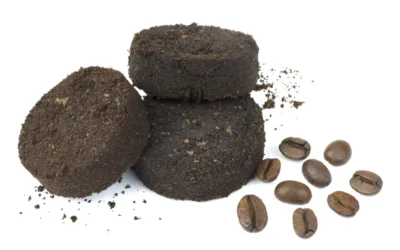Your morning cup of coffee not only provides a much-needed caffeine boost but can also contribute to a sustainable future. In recent years, a growing number of innovative minds have been turning coffee waste, which is often seen as a byproduct, into a valuable resource for renewable energy production. Let’s explore the fascinating journey of how coffee waste is being transformed into biofuel, paving the way for a greener world.
The Coffee Industry’s Hidden Treasure
The global coffee industry produces millions of tons of waste every year. This waste includes coffee grounds, parchment, and husks, which were previously considered a nuisance. However, forward-thinking individuals and organizations have recognized the untapped potential of these coffee residues.
Biofuel from Coffee Grounds
One of the most promising developments is the conversion of coffee grounds into biofuel. Coffee grounds are rich in organic compounds, making them an ideal feedstock for biofuel production. Here’s how it works:
- Collection and Processing: Used coffee grounds are collected from coffee shops, households, and industrial coffee processing facilities. These grounds are then dried and processed to remove any impurities.
- Biofuel Production: The processed coffee grounds are subjected to various biochemical and thermochemical processes, such as anaerobic digestion and pyrolysis, to convert the organic matter into biofuel. The resulting biofuel can be in the form of biogas, biodiesel, or other bio-based fuels.
- Energy Generation: The produced biofuel is used to generate electricity, heat, or even to power vehicles. Some coffee shops have harnessed this technology to power their operations, creating a closed-loop system.
Environmental and Economic Benefits
The transformation of coffee waste into biofuel offers several benefits:
- Waste Reduction: It significantly reduces the amount of coffee waste going to landfills, thus decreasing environmental impact.
- Renewable Energy: Biofuel from coffee waste is a renewable energy source that can replace fossil fuels, reducing greenhouse gas emissions.
- Local Economies: It can boost local economies by creating job opportunities in waste collection, processing, and biofuel production.
- Energy Independence: Some coffee-producing regions can use coffee waste biofuel to reduce their reliance on imported energy sources.
Innovative Initiatives
Numerous initiatives and companies are at the forefront of this innovative movement:
- Bio-Bean (UK): Bio-Bean has been leading the way in coffee waste recycling, converting used coffee grounds into advanced biofuels and biochemicals.
- CafeDirect (UK): This coffee company collaborates with bio-bean to recycle its coffee grounds, creating a circular economy model.
- Starbucks (Global): Starbucks, one of the world’s largest coffee chains, has taken steps to repurpose its coffee waste into energy, powering stores and even local communities.
A Sustainable Morning Ritual
As the world continues to seek sustainable solutions for its energy needs, the concept of turning coffee waste into biofuel is a testament to human innovation. Your daily cup of coffee may soon be more than just a morning ritual; it could become a symbol of sustainability and an essential component of a greener, cleaner, and more renewable future. So, next time you savor that cup of joe, remember that it’s not just waking you up; it’s powering a sustainable world.

